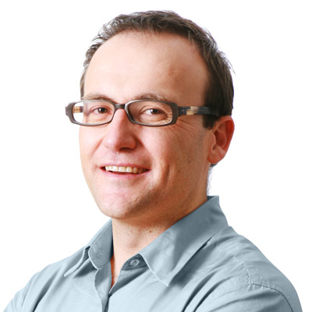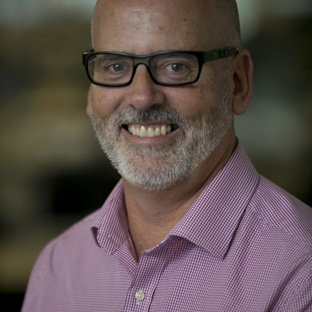In 2010, ‘new journalism’ guru Jay Rosen suggested a radical new form of election reporting – as opposed to the usual personality-based ‘horse race journalism’.
Four to six months before the election begins, the media should ask citizens not who they would vote for, but which issues they want the candidates to discuss. The media would then pursue these issues.
The Citizens’ Agenda is a social-media based research project that puts Rosen’s idea into action, run by the University of Melbourne’s Centre for Advancing Journalism and social media website OurSay. It aims to encourage political engagement by opening the process to the people.
Voters in ten key electorates around Australia – a mix of marginal and safe seats, urban, rural and regional – will have a chance to directly influence debate and media coverage, by posting questions on the OurSay website and voting for the questions others have contributed. The questions voted most crucial will be put directly to local candidates, in a series of ‘town hall’ style meetings.
Join moderator Andrew Holden and five candidates for the seat of Melbourne (currently held by Adam Bandt) – Bandt (Greens), Sean Armistead (Liberal), Cath Bowtell (Labor), Michael Bayliss (Stable Population), Royston Wilding (Secular Party) and James Mangisi (Sex Party) as the top questions are posed, live.
Be part of this revolutionary example of democracy in action – and journalism as driven by the people, for the people.
Podcast
Missed out, or couldn’t get there? Listen to the audio recording of the full event: mp3 (99 minutes, 47.5mb)
Featuring
James Mangisi
With a commitment to Australian equity, James Mangisi has travelled the farthest and most remote regions of our country working as a science communicator. He is the Australian Sex Party’s candidate for the seat of Melbourne in the 2012 Federal Elections.
Engaging with a diverse range of Australian communities, James has worked with Aboriginal students in the Kimberly, urban youths in Newcastle and refugee secondary students in Canberra.
As a man of science, James shared his love for reason, evidence and critical thinking with over 80,000 Australians in five states and loves nothing more than seeing the passion for science burn brightly in the eyes of children.
A son of Melbourne, he grew up in Kew East and spends his time frequenting inner-city Melbourne’s parks, cafes and bars. With a passion for intellectual and physical strength, James devotes his free time to his powerlifting and writing social and political columns. In the upcoming election, he will champion same-sex marriage, euthanasia rights and the proposal of taxes for non-charitable religious organisations. James wishes to see science play a stronger role in our political discourse through evidence-based policy. The universality of enlightenment and scientific values are his moral compass.

Adam Bandt
Adam Bandt is a Greens MP and the Federal Member for Melbourne. He was elected in 2010 when he made history by becoming the first Greens MP elected to the House of Representatives at a general election.
Adam was elected Deputy Leader in April 2012 and is the federal Greens spokesperson on industrial relations, banking, science and industry spokesperson. He was also participant in the government’s Multi-Party Committee on Climate Change.
Since being elected to Parliament he has successfully moved motions on marriage equality and condemning the government’s refugee deal with Malaysia. He has introduced legislation on protecting the Alpine National Park, banking reform, banning live animal exports and Parliamentary approval for sending troops overseas. Adam’s Bill to compensate fire fighters with cancer passed both houses in November 2012 and his Equal Marriage Bill is currently before a house committee.
Adam received undergraduate Law/Arts Honours degrees at Murdoch University, where he won the Sir Ronald Wilson Prize for Academic Achievement and he completed a PhD at Monash University in 2008.
His thesis looked at the recent trend of governments suspending basic human rights in areas such as migration, workplace relations and criminal law. He has written articles for many publications and has taught industrial relations law at RMIT.
For many years he worked at the labour law firm Slater & Gordon, where he became a partner in the industrial and public interest unit, the same job former Prime Minister Julia Gillard used to have. He is now a barrister who specialises in the field of industrial, employment and public interest law. Adam has represented many unions and low paid workers and has worked on cases involving freedom of speech and implementation of international covenants into Australian law.
Adam lives in Flemington with his partner Claudia and their two dogs.
Cath Bowtell
Cath Bowtell is the Labor candidate for Melbourne in the Federal Election.
She has lived in North Melbourne with her husband, Peter, for more than 25 years.
Cath has been active in the local community through the North Melbourne Legal Service and as a parent at Curzon Street Children’s Centre and the local government schools her children attend.
Cath worked for many years as an advocate for worker’s rights, fighting for better carer’s leave, flexible work for parents, paid parental leave and better access to quality, affordable childcare.
Most recently, Cath headed up a major superannuation fund.

Michael Bayliss
Michael Bayliss is the Stable Population Party’s candidate for the Federal seat of Melbourne.
Michael has postgraduate degrees in both economics and sport science, and has developed inclusive sports programs for people with disabilities in capital cities across Australia.
In 2012 he won a finalist award in the disability sector for his contribution towards community inclusion. He has volunteered abroad in rural Kenya to work on humanitarian and community development projects.
He is a committee member for the Victorian and Tasmanian branch of Sustainable Population Australia and has also been an advocate and campaigner for disability inclusion, animal rights and sustainable town planning.
Michael strongly believes that a stable population will help address many issues facing Australia, such as the housing crisis, environmental toll and infrastructure deficit.

Andrew Holden
Andrew Holden was appointed Editor-in-Chief of The Age in July 2012.
It meant a return to his home town, after spending a dozen years in New Zealand. Among his roles there, he was editor of The Press in Christchurch for four a half years, which included the major earthquakes which devastated the city.
Andrew has more than 30 years' experience in journalism, from daily newspapers to community titles and magazines in three countries.

Sean Armistead
Sean Armistead was born in Darwin, where he lived with his father and his mother – a Ngunga Aboriginal Woman – before moving to Melbourne at the age of eight. He is the Liberal candidate for the seat of Melbourne in the 2013 Federal Elections.
Sean grew up and attended primary and secondary school in the blue collar suburb of Frankston before completing a Bachelor of Commerce at Melbourne University. At the University of Melbourne, his passion for Indigenous affairs flourished, and he became the university’s first elected Office Bearer of the Indigenous Department.
Sean has been a strong advocate for Indigenous affairs, actively working with the Indigenous community across Australia and assisting many Aboriginal and Torres Strait Islander people into employment. He has close involvement with a number of community organisations and associations, and for the past two years has been the Chairperson of Worawa Aboriginal College.
He began his career at the Department of Foreign Affairs and Trade as a policy officer and has since worked for Hewlett Packard, Indigenous co-founder of CareerTrackers and also as the Indigenous Employment Program Manager of KPMG.
He currently works as the Manager of the Indigenous Employment Program for one of Victoria’s largest single site employers, creating opportunities for disadvantaged people to gain jobs and build careers.
